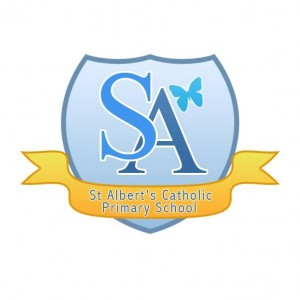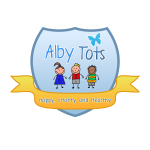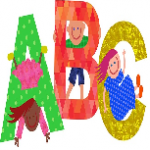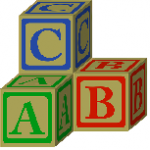Welcome
St Albert’s Catholic Primary School Foundation Stage is a vibrant, friendly place where children are encouraged to learn and play in a caring, happy environment. Our mission statement is at the heart of everything we do:
Catholic Primary School Foundation Stage is a vibrant, friendly place where children are encouraged to learn and play in a caring, happy environment. Our mission statement is at the heart of everything we do:
“Walking together with Jesus to love, learn and serve”
The EYFS is a very important stage in a child’s life as it helps prepare for school ‘readiness’ as well as preparing them for their future learning and successes. Children’s early years experience should be happy, active, exciting, fun and secure; and support their development, care and learning needs. Every child deserves the best possible start in life and the support that enables them to fulfil their potential. Children develop quickly in the early years and a child’s experiences before the age of five will have a major impact on their future life chances.
The EYFS framework explains how and what children will be learning to support their healthy development and provide the foundation children need to make the most of their abilities and talents as they grow up.
Children in the EYFS learn by playing and exploring, being active, and through creative and critical thinking which takes place both indoors and outside. It is very important that they develop social skills, such as turn-taking, sharing and independence, which help them greatly in the next stages of their learning. The guiding principles that shape our practice in the Early Years are that children are born ready, able and eager to learn. They actively reach out to interact with other people, and in the world around them. Development is not an automatic process, however. It depends on each unique child having opportunities to interact in positive relationships and enabling environments.
Phonics teaching and learning are a key part of the Foundation Stage and help to develop early reading and writing skills. If you visited our Nursery or a Reception class, you would see a range of activities taking place such as role-play, practical games, painting, cutting and sticking and reading in the book corner. You would also see the outdoor classroom in operation, with equipment such as bikes, cars, sand and water.
Children work and play independently, with a strong emphasis on choice and being able to sustain concentration on projects, as well as joining a variety of adult-led activities. We encourage a partnership with parents so they are actively involved in their children’s learning.
From September 2021, St Albert’s early years is working towards the new framework, which effects children from Alby Tots to the end of reception.
The DfE says that the proposals are intended to:
- Save time doing unnecessary paperwork – educators will be spending less time doing paperwork and observations and more time interacting and building relationships with children
- make all 17 ELGs clearer, more specific and easier for teachers to make accurate judgements, there are still 7 areas of learning that remain the same
- focus on strengthening language and vocabulary development to particularly support disadvantaged children
- strengthen literacy and numeracy outcomes to ensure all children have a good grasp of these areas of learning in preparation for year 1
- ensure the ELGs are based on the latest evidence in childhood development
The new non statutory development matters gives 7 key features of effective practice:
- The very best for every child
- High quality care
- The curriculum – what we want children to learn
- Pedagogy
- Assessment
- Self-regulation and executive function
- Partnership with parents
Personal, Social, Emotional Development
Personal, Social, Emotional Development is now in three parts and included self-care, eating and managing emotions; Self Regulation (regulate their behaviour), Managing Self and Building Relationships.
‘Self Regulation’ replaces ‘Managing feelings and behaviour’.
Self-regulation is the ability to monitor and manage your energy states, emotions, thoughts, and behaviours in ways that are acceptable and produce positive results such as well-being, loving relationships, and learning;
Communication and language
Communication and language has been split into two instead of three sections, putting listening and understanding together and a greater focus on the importance of language development. The end goals are similar to the existing EYFS.
These are the foundations of literacy and a Prime Area in the EYFS. Without these skills children will not be able to move onto Literacy, in the National Curriculum there is Literacy and Language.
Children still need to develop their language skills as much as their writing in the National Curriculum.
Physical Development
This is the third prime area of learning. There is now a greater focus on the link between gross and fine motor skills.
Health and Self-Care has moved to PSED now and Physical development now concentrates on just that.
Covering the objectives in the EYFS for maths through play
Maths has taken less of a focus on shapes and more of a focus on patterns. Shape work is included in the development matters but not in the ELG.
Practitioners are able to work on shaping their own way of teaching maths which can be done through play and short adult led activities.
Literacy
Goals are similar to before but there is greater focus on literacy learning in earlier ages including a link between understanding and later reading and writing skills. Children in Early Years learning these skills through phase 1 then phase 2 phonics, as well as through storytelling and small world and role play, mark making in play, drawing and painting.
Understanding the World
There is a greater focus on widening experiences in line with cultural capital.
Technology has been removed as children get so much technology already at home and ipads are not age appropriate for early years children, settings will use it of course but there is no prescribed end goal. The new Understanding of the World focuses more on building scientific knowledge.
Art and Design
Remains very much the same.
Characteristics of Effective Learning
The Characteristics of effective learning remain unchanged in the new EYFS. Children need motivation to learn.
Motivation is more important than knowledge and is the key to success for children and adults. Think of the Characteristics of Effective Learning as instilling motivation to not only succeed in Early Years, but to also become lifelong learners. The EYFS has the Characteristics of effective learning at the heart of the curriculum.
Assessment
The statutory assessment in Early Years:
- 2 Year Check; which will take place in Alby Tots or via a child’s health visitor
- Baseline in Reception
- ELGs
Practitioner knowledge is much more valued and there is still a need to educators to share information with parents in which way they chose. Our curriculum goes into the detail of assessment.
There is no longer and exceeding judgement at the end of Reception.
Safeguarding
Safeguarding and welfare of children remains as important as ever with a new focus on oral hygiene and teaching children oral care as well as providing information to parents.




